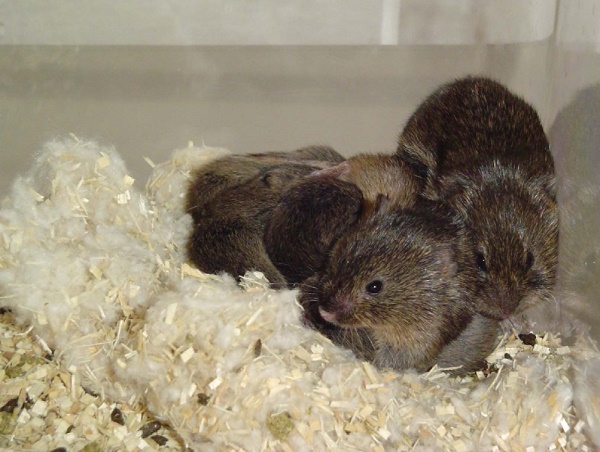Intergenerational transmission of the neurobiology of social bonds in a socially monogamous, biparental species, the prairie vole (Microtus ochrogaster)
Karen L. Bales and Allison M. Perkeybile
Department of Psychology, University of California, Davis, USA
Social bonds are necessary for many mammals to survive and reproduce successfully. These bonds (i.e. pair-bonds, friendships, filial bonds) are characterized by different periods of development, longevity and strength. In our studies of prairie voles (Microtus ochrogaster) and titi monkeys (Callicebus cupreus), we have examined the neurohormonal basis of these bonds, as well as their intergenerational transmission. Socially monogamous species display certain behaviors not seen in many other mammals, such as adult pair-bonding and male parenting. However, most phylogenies show social monogamy evolving multiple times – why would we then expect the neural substrates to be the same in every case? Here, we discuss the evidence from voles that adolescent and adult social bonds are shaped by the early experience of sociality, including changes to sensory systems and connections, neuropeptide systems such as oxytocin and vasopressin, and alterations in stress responses. We will compare this with what is known about these processes during development and adulthood in other mammalian species, both monogamous and non-monogamous.









You must be logged in to post a comment.